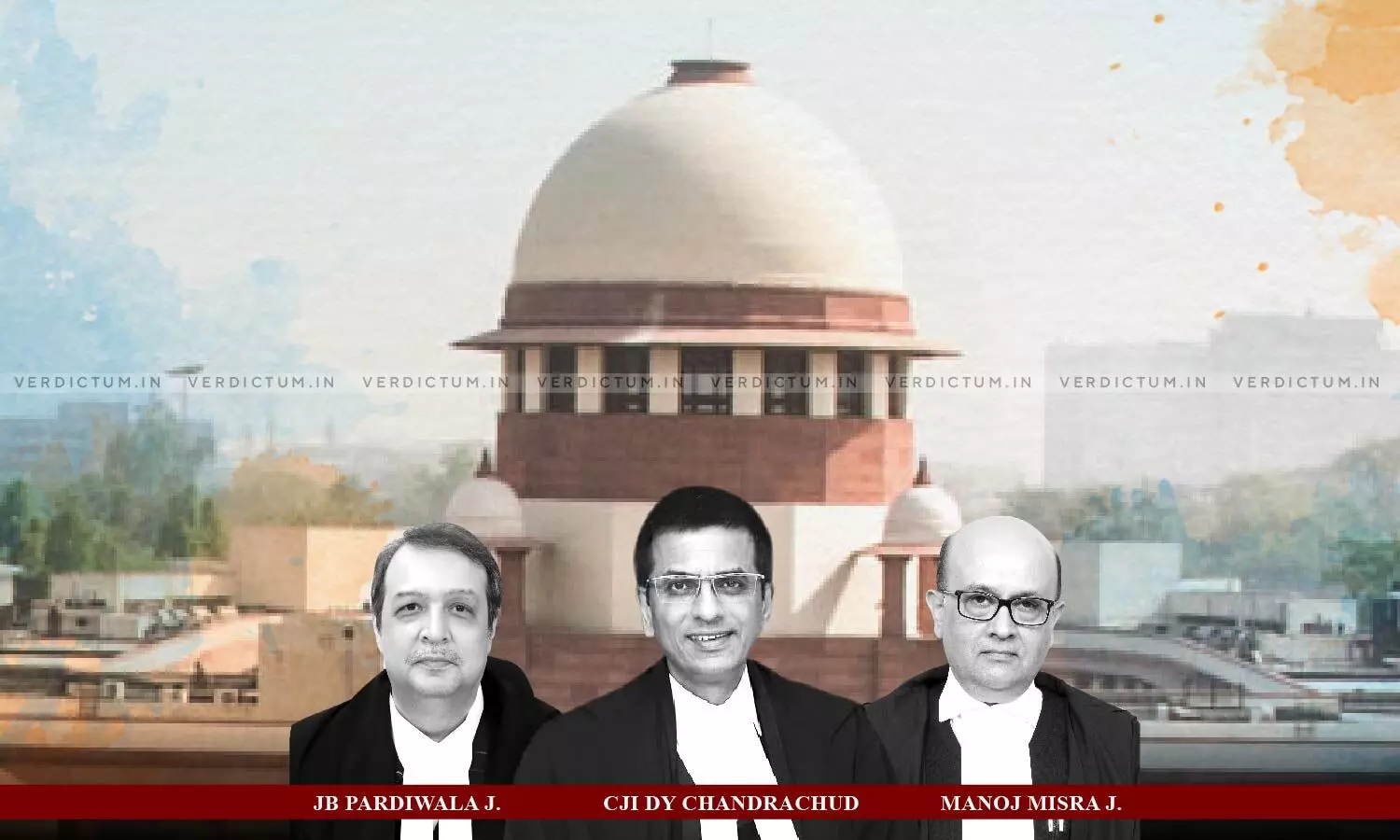
"Important Issue": SC While Issuing Notice In PIL Seeking Implementation Of National Commission For Allied & Healthcare Professions Act
 |
|The Supreme Court has issued a notice in a Public Interest Litigation (PIL) that seeks the implementation of the National Commission for Allied & Healthcare Professions Act, 2021, as well as the establishment of the respective Professional Councils and State Allied & Healthcare Councils, as mandated by Section 22(1) of the Act.
Calling it an important issue, the Bench of Chief Justice D.Y. Chandrachud, Justice J.B. Pardiwala, and Justice Manoj Misra issued notice and sought the responses of the Central government along with State governments. "Issue notice. Returnable in 3 weeks. Liberty to serve central agency in addition. We request the learned Attorney General to depute any Additional Solicitor General to assist this Court since the Petition relates to non-compliance with the provisions of the National Commission for Allied & Healthcare Professions Act, 2021", stated the Bench.
The PIL filed by the Joint Forum Of Medical Technologists Of India (JFMTI) through the Advocate-on-Record Joby P. Varghese assisted by Advocate Upamanyu Sharma seeks the urgent implementation of the National Commission for Allied & Healthcare Professions Act to regulate and standardize the allied healthcare sector in India, ensuring better quality healthcare services and education.
In the PIL, it is submitted that the National Commission for Allied & Healthcare Professions (NCAHP) Act came into force on May 25, 2021. However, even after two years, its provisions have not been implemented. The Petitioner asserts that, according to the initial timeline, the State Councils should have been constituted within six months. Instead of implementing the provisions of the NCAHP Act, the Central Government has repeatedly extended the timeline for its implementation, with five such extensions granted to date.
"Despite being a major support pillar of the healthcare sector, there has not been any council in the Country for the Allied and Healthcare Professionals that would establish a robust regulatory framework, which will play the role of a standard setter and regulator for Allied Healthcare, and Professionals in the Country", reads the PIL.
It has also been highlighted by the JFMTI that while steps were being taken to regulate the allied healthcare sector, several institutes started mushrooming across the Country giving out diplomas and certificate courses to students without any regulatory control or teaching pattern in the allied healthcare sector.
Seeking the implementation of the act in letter and spirit, the PIL states that the World Health Organization projects a demand for 1.5 crore allied health professionals globally in the coming years, offering significant employment opportunities. However, the absence of standardization and mutual recognition of qualifications internationally due to the lack of a regulatory council serves as a deterrent.
It further states that the absence of an institutional framework for certifying degrees and diplomas from recognized institutions poses a hurdle to job opportunities in the country. Therefore, the need for standardizing syllabi, curricula, teaching staff, and institutions became evident, leading to the proposal for the establishment of a council to set standards for previously unregulated categories, as per the plea.
"Health workforce in Indian healthcare system has been defined with focus limited to few cadres such as doctors, nurses and frontline workers, wherein, several other healthcare professionals being the Allied Health professionals remained unidentified, unregulated and underutilized over these years. The persistent demand for a regulatory framework to ensure appropriate regulation and standardization of such professions has been seen for several decades", states the petitioner in the PIL.
The Medical forum has also stated that not even a website for the National Commission has been created by the Central Government to date. Along with the implementation and availability of the State Councils, the PIL seeks to establish procedures for the registration and licensing of Allied and Healthcare Professionals, as per the NCAHP Act. Additionally, it seeks the implementation of uniform model course curricula, approved by the Ministry of Health & Family Welfare, to ensure consistency in professional courses, qualifications, job roles, and career pathways.
Recently, Apex Court had issued notice in a PIL seeking action and guidelines against the medical practitioners/doctors prescribing branded medicines to patients instead of Generic drugs/medicines which have the same active ingredients as their branded counterparts but are not marketed under a specific brand name and are often significantly cheaper.
Cause Title: Joint Forum Of Medical Technologists Of India (Jfmti) & Ors. v. Union of India & Ors. [W.P.(C) No. 983/2023]